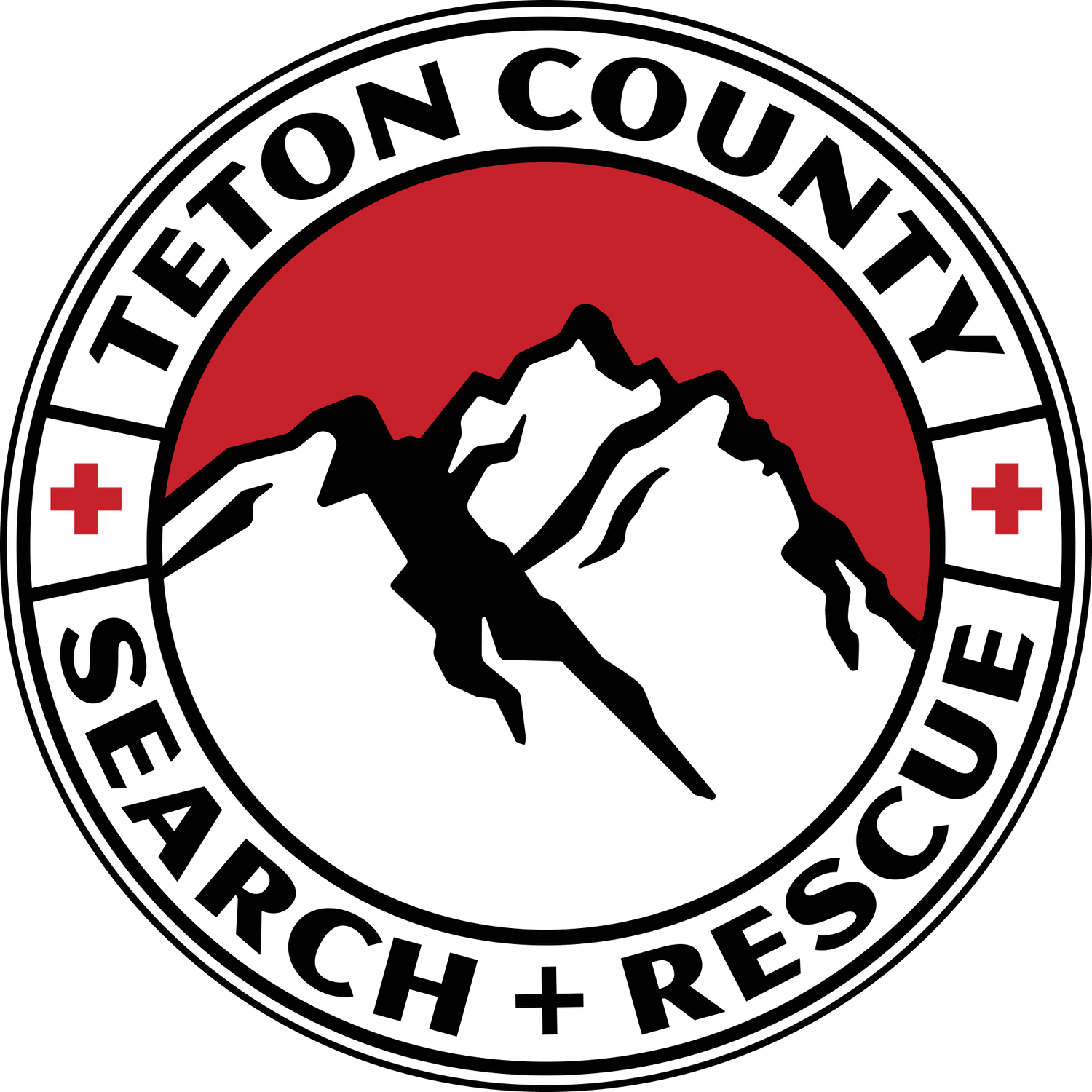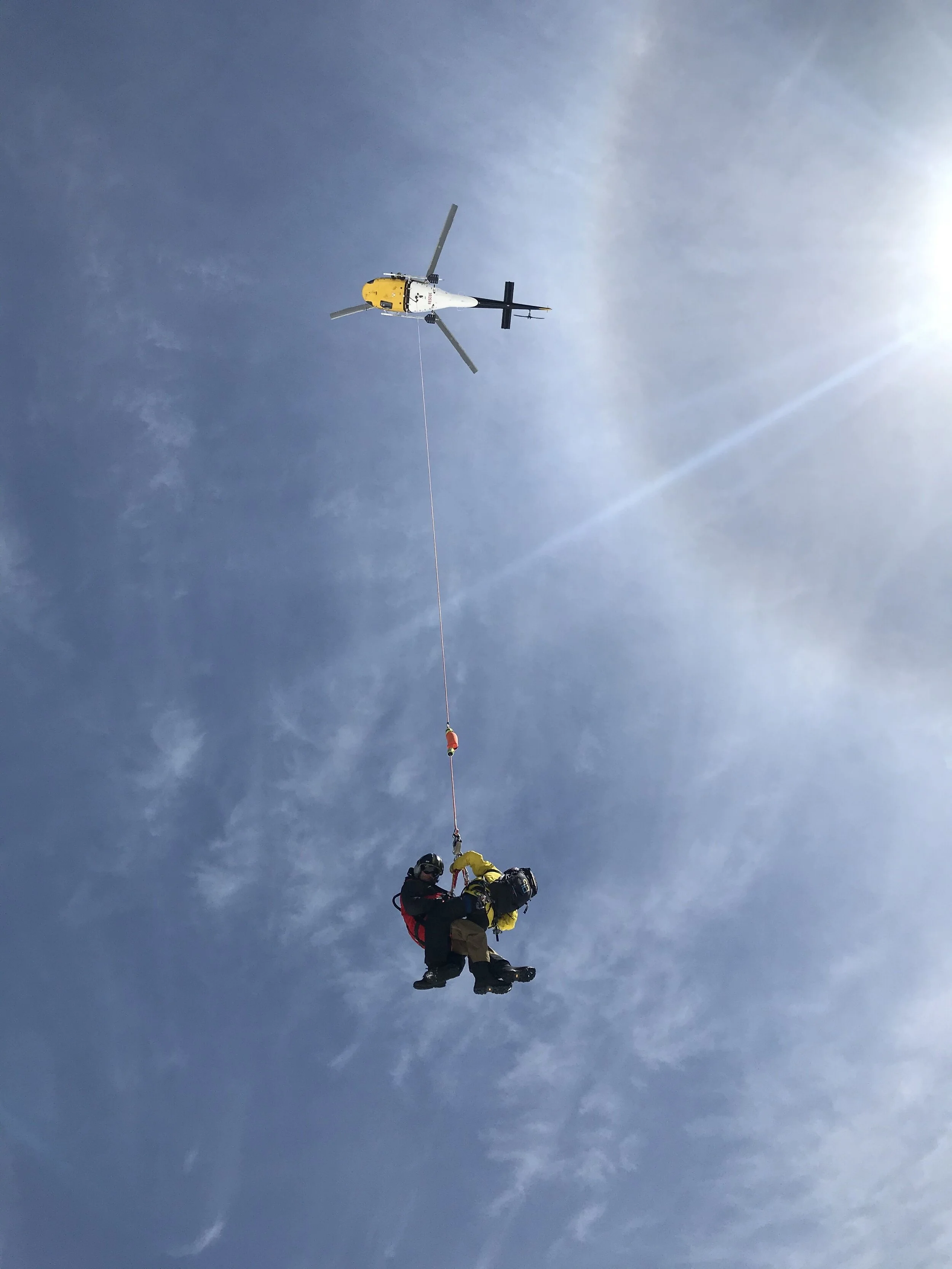This week, as part of our “Heli-Yes!” campaign, we're profiling Jon Wiedie, a TCSAR volunteer since 2004. Originally from Bolton, Connecticut, Wiedie just finished his 26th year in Jackson. His intro to the area was as a summer employee at Yellowstone’s Roosevelt Lodge in 1991. The next summer, he volunteered for the Forest Service in Driggs, Idaho, and completed his schooling at the University of Montana in Missoula, in 1994. He then moved to Jackson and says “it all fell into place.” As a TCSAR volunteer, he has the unique perspective of being both rescuer and rescuee. In 2016, he joined the short-haul squad.
Through the pandemic, Wiedie has been skiing, biking, and kayaking, and jokes that one of the highlights is that there haven’t been as many people around. “I’m generally crowd averse,” he says, “so this actually works great for me!”
Why should people support Heli-Yes?
JW: The helicopter invariably increases our response time by 20 fold. You just can’t match the lives it saves, and the resources it saves by reducing the number of people in danger. It’s a really effective and efficient way to help people in need despite the risks, which is going to be involved in any rescue.
What motivated you to become a TCSAR volunteer?
My mom was always encouraging me to give back to the community. That’s what she’s done. She just turned 78 and is still an avid volunteer. To a large degree she’s been prodding me that if you’re staying somewhere, you should give back your time.
Why did you want to join the short-haul team?
In the spirit of being adventurous, as we all are on the team, it seemed like an exciting thing to do and be a part of, and help folks out of trouble in a more efficient manner.
What are some of the important factors of being on the short-haul team?
We follow the mantra: Slow is smooth and smooth is fast. We use that in the swiftwater world, too. You have to see the big picture while also being able to focus on the little details.
What is the most challenging aspect of short haul?
For me, it was getting used to trusting the gear. When you’re taking a long flight and you’re way up there, it can be hard to relax. The more I’m around a helicopter, the more I’m aware of it. It’s a fragile means of rescue but also very effective. I just tune it out and stay focused on what’s right in front of me, and trust the pilot is going to be where they need to be. We have a symbiotic relationship of trusting each other and having a system down between the individual and the pilot, so you have to have a lot of trust.
The relationship between pilot and short-haulers is built on trust and a lot of training. Photo: Jen Reddy/TCSAR
Has your time on TCSAR changed the way you approach the backcountry?
I think my approach has become more conservative just based on my own near misses. I’ve been buried in an avalanche, broken my neck, and had a couple of close calls, which for the most part happened before I was involved in SAR. But in 2010, I had to call the team with a broken neck. I was skiing in Rock Springs and hit a tree (outside the JHMR boundary). I had a highly unstable fracture and had to be flown out. Thankfully I had my phone where I needed it, and some good luck.
In your time at TCSAR, what or who has been your biggest influence?
The team. I don’t do the team sport thing, but if there’s one thing that I feel proud of and have an affinity for, it’s being a part of this great group of folks.
What has been the biggest reward of being a volunteer?
Being a part of the community I’ve chosen to make my life in, and being able to help out. Seeing people around who are like, ‘Hey man, thanks for what you did.’ The response we get from folks we have helped, whether local or visitor, it’s rewarding to see how appreciative people are.
What music are you currently listening to?
John Prine, Brandi Carlile, Folky Americana.
If you could have one meal the rest of your life, what would it be?
My mother's spaghetti and meat sauce.
What do you do when you are not Search and Rescuing?
Trying not to get search and rescued again. I’m one of many here, biking and kayaking and skiing, and trying to make a living and keep it going.


